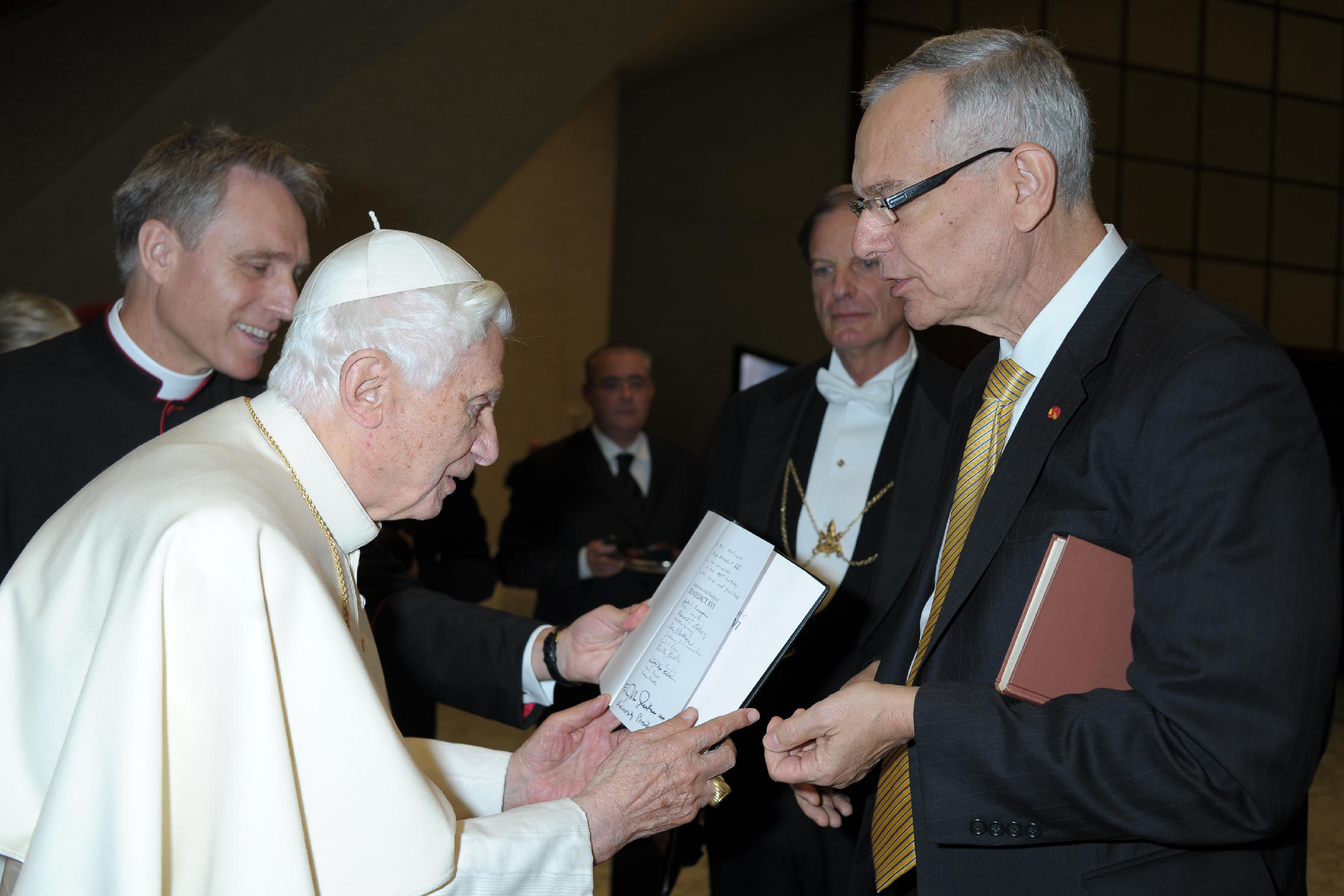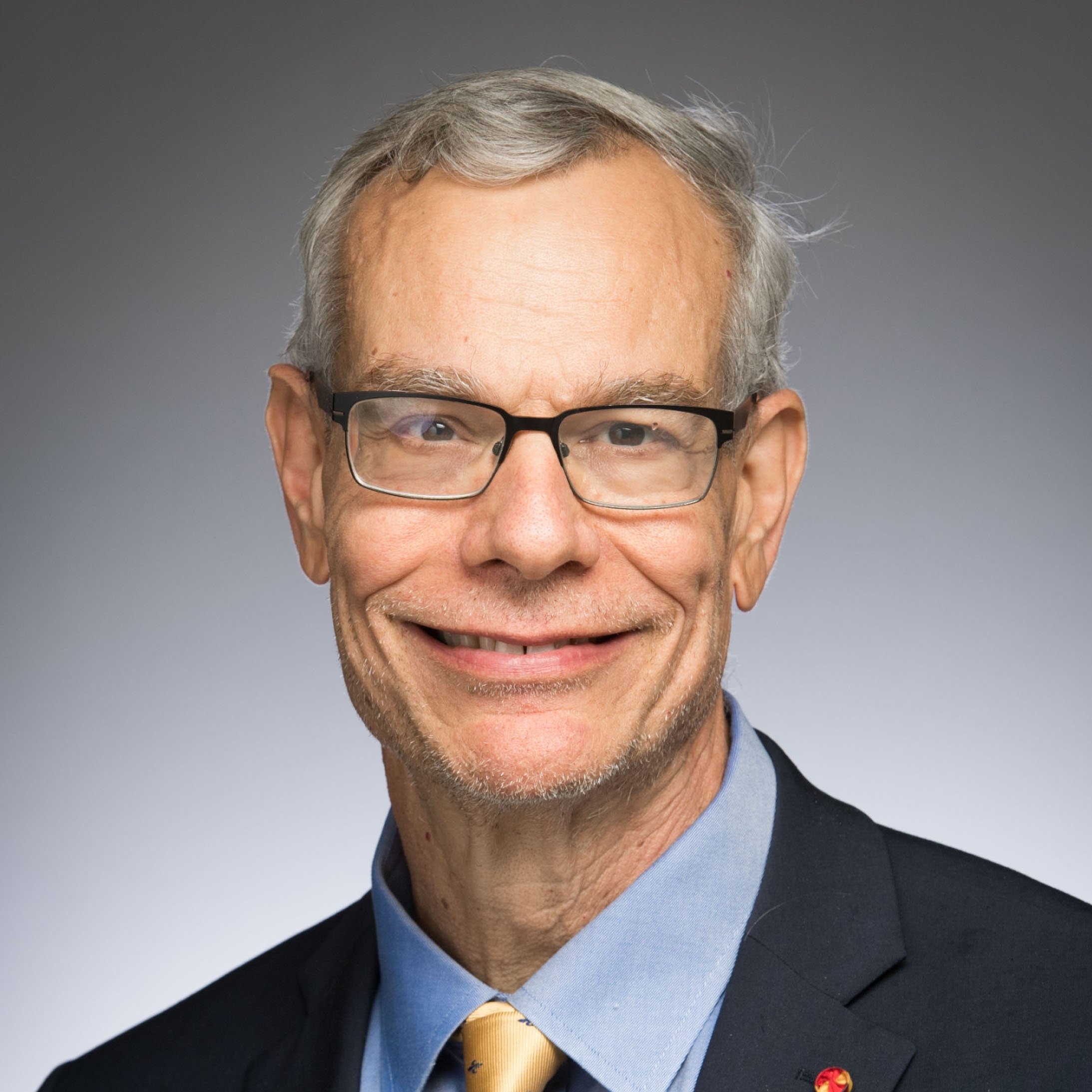Editor's note: These remarks were delivered at the annual Echo Mentor Dinner on July 9, 2016.
Dear Friends,
I recently received a book in the mail, a gift of the author, Michael Foley, who used to teach here. The title seems to sum up our evening together so I’ve brought it so show to you: it’s called Drinking with the Saints. He opens the book with the famous lines from Hilaire Belloc which I am sure you all know, but it never hurts to hear them one more time:
Wherever the Catholic sun doth shine
There’s always laughter and good red wine,
At least I’ve always found it so,
Benedicamus Domino!
Speaking of the sun, I don’t really remember an Echo Mentor Weekend Dinner for which the weather was not perfect and the summer evening so shot through with seemingly infinite light and warmth that it did not seem symbolic for a moment set apart in the actual infinite. Being suspended in light from up in the Press Box always added to the impression, but even here closer to earth one can still feel an invitation to a contemplative moment. Since we know from the CCC (§2709) that, according to Teresa of Ávila, “contemplative prayer is nothing else than a close sharing between friends,” we are luckily in the perfect company to take up the invitation that the summer evening has tendered. But who will teach us how to pray in the contemplative mode? If we take the suggestion of St. Teresa, who, let us admit, was no slouch when it came to contemplative prayer, famously she said, “If anyone cannot find a teacher to teach him how to pray, let him take this glorious saint [Joseph] as his teacher and he will not go astray.” I find this statement very moving. She doesn’t say, go to Pseudo-Dionysios, or go to Evagrius, or go to Cassian, or go to Bonaventure or to the author of the Cloud, if she knew of it: she says go to Joseph. I am not entirely sure why she chose St. Joseph, but I will venture a guess. In the words of Andre Doze, who wrote a beautiful little book on St. Joseph, Shadow of the Father: “What touches upon Joseph is generally carefully hidden and is of no particular interest” (60).
Joseph himself is hidden from view. He speaks nothing in the Gospels. He spends his time listening, attentive even to his dreams, and acting, but even in the acting he is effaced. After all, his wife was Queen of Heaven and the one who called him Dad was Son of God. What glory could he claim by comparison? Nor can he even give an account of his own identity, for his job is, as it were, to keep the other members of the Holy Family hidden until the “hour” of the Son, and thus of the Mother, had come. To think of St. Joseph is to think of a kind of black hole, into which information flows but is not ever retrieved, because he is silent and intrinsically hidden and “of no particular interest.” In a way, he can’t be seen, by the design of God and his own will, and suddenly you realize that is the key, his will, his heart, this black hole, is created by the heart at its center, full of warmth and claiming no particular achievement in his paternal solicitude for his family.
To think of St. Joseph is already to pray, and at the same time to resist the temptation to treat prayer as a skill that one ‘masters’ and then brags about, even if only mentally. Thinking of St. Joseph, you are lost in an admiring reverie of someone whose whole life was one of claiming no accomplishment, a life “of no particular interest” made that way by love. The thought of St. Joseph cannot be co-opted by the pathology that blocks prayer, the attempt to turn it into a spiritual technology that will GET you somewhere. If you become friends with St. Joseph, you will see why St. Teresa said that “contemplative prayer is a close sharing between friends” to enjoy, and not a spiritual technology to master.
Why do I bring up St. Joseph? Because, I believe, that anyone who tries their hand at the catechetical enterprise, at any end of it, finds themselves, in a way, in the position of St. Joseph. Suddenly what you do is “of no particular interest” to a lot of people who thought you were going to be successful in life and accomplish great things. In my case, my own mother told me, repeatedly and pointedly, I was the wrong kind of doctor. But mutatis mutandis, the theological and catechetical mode is “of no particular interest” to the world at large. It is hidden, and intrinsically so, as hidden, in a way, as is the whole of Christian life, as it says in the letter to the Colossians, “for you have died, and your life is hid with Christ in God” (Col 3:3), and St. Joseph, is in a way, the primordial example of this hiddenness. The Christian life is “hidden” because the wellsprings of Christian action are “hidden” in the “death” of Baptism in which “I am crucified to the world and the world is crucified to me” (Gal 6:14). I think the catechist as catechist feels this hiddenness intrinsic to the Christian life to the exponent of 2, that is, squared.
But that must mean, too, that the life of the catechist, qua catechist, is an invitation to contemplation, an invitation to him- or herself, and to anyone he or she engages in the various tasks of evangelization and catechesis. If you can’t quite see how, then follow St. Teresa’s advice and take St. Joseph as your guide. Meanwhile let me add my own thanks, for your work is not hidden from me, and I want to express my admiration, my esteem, and my thanks, and my continuing gratitude.
We know that the Kingdom of Heaven is like a wedding feast, so we can look forward to “drinking with the saints” for all eternity, that is, if it really is a GOOD wedding feast like it’s supposed to be. And why wouldn’t it be, after all, it’s the wedding supper of the Lamb, and doesn’t it say somewhere that he turned water into wine—thus elevating a real live wedding feast into a living parable of the Kingdom? Which returns us to our dinner this evening, in its own way, like a kind of lower key reflection of that wedding feast, a living image of the contemplative moment of eternity, yes this dinner, not the classroom or any of the various brands of self-help spiritual technology all too easily available in our culture.
Thank-you friends, with love and gratitude always, JC.
![]()



